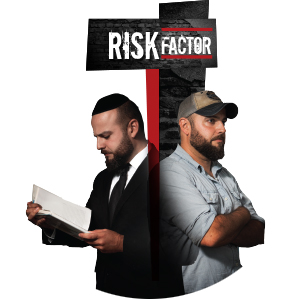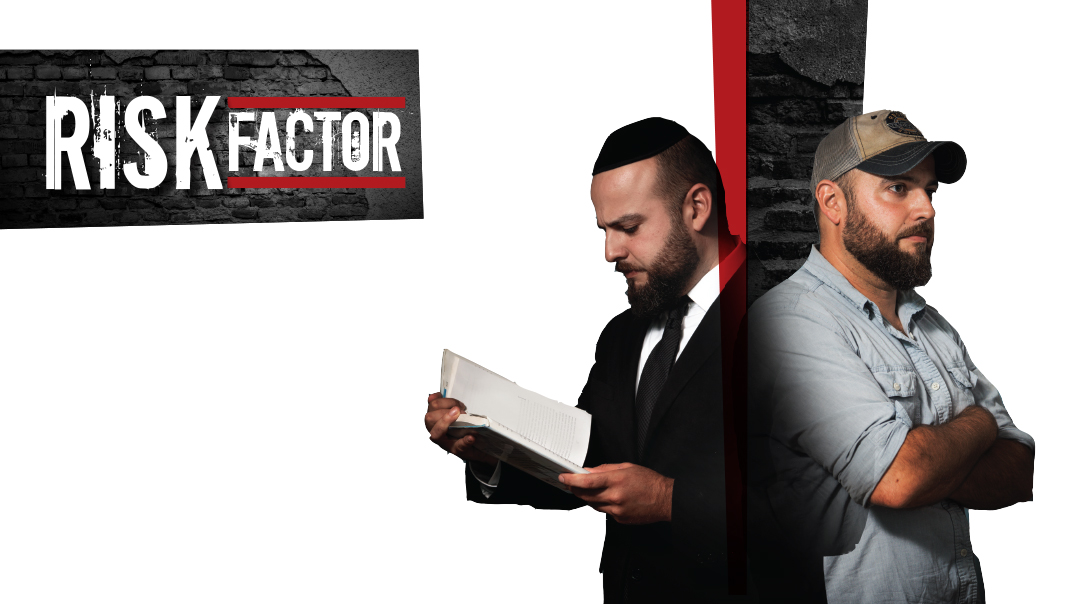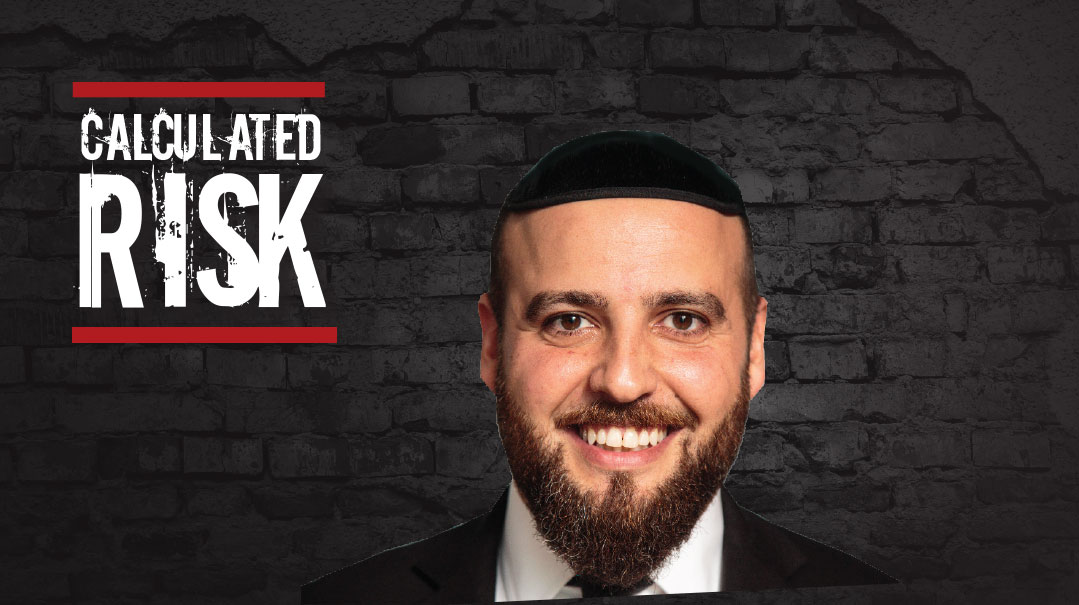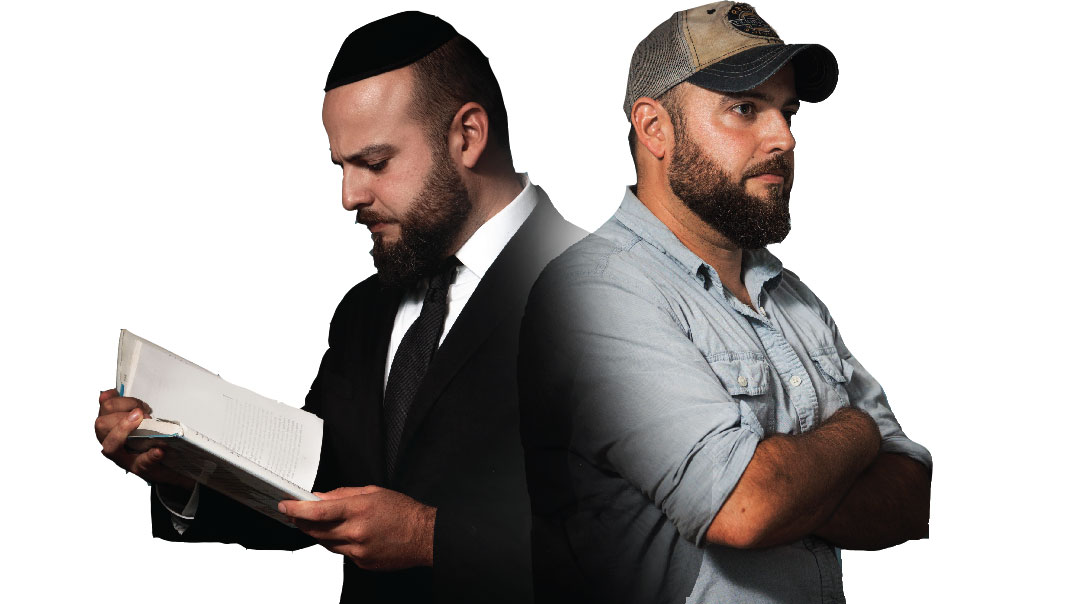The Devil’s Test

"No substance is bad, it’s the reasons we use them and what it does to our lives that is bad"
Tal Sharfman was high when came into my office.
He slumped into a chair. “That’s a big yarmulke, bro,” he said through his haze.
“Yeah, it makes styling my hair a lot easier,” I said.
He snickered. “But you’re bald, bro.”
“That’s very observant of you,” I replied. “Not everyone gets that joke.”
“Joke?”
Tal had been thrown out of two schools already and his parents were refusing to let him return home, out of fear that he would, in their words, “bring his tumah in the house.”
“Tal, let me ask you something,” I said. “What are we doing here?”
He shrugged, waited a beat, and then said, “My parents are hoping you can fix me, I guess.” His tone was matter of fact.
“Do you think you’re broken, that you need to be fixed?” I asked.
“Doesn’t matter what I think,” he retorted. He looked away.
“It’s really annoying when someone kills your buzz, huh?”
He shifted uncomfortably. “I’m not high.”
“Yes, you are. It’s okay, I’m not going to tell you to stop using,” I said.
His eyes flickered toward mine, met for an instant, looked away again.
“Why not?” His tone was aggressive. “Isn’t it bad?”
The Devil’s Test. Every disgruntled teen I’ve ever worked with inevitably runs the Devil’s Test. It’s when they say what they think you’re thinking and wait to hear your response. Depending on your answer, they’ll decide whether or not they can trust you.
A teenager’s issues come from a variety of sources and for a variety of reasons, but in general, the underlying angst is rooted in a sense of not being accepted, respected, and understood. Teens see adults as a forgone conclusion: adults will not accept, respect, or understand me. Avoid them at all costs.
You don’t answer a Devil’s Test by saying what they want to hear. You answer by showing that you’re not what they think you are. Intrigue them enough that they’ll want to know you, and show them that you respect them so much that you want to know them.
“I don’t believe that any substance is bad,” I said.
His face registered shock.
“Marijuana is not bad, Tal,” I reiterated.
“Can I quote you on that?”
“No substance is bad, it’s the reasons we use them and what it does to our lives that is bad. Too many people focus on not using drugs or drinking alcohol instead of focusing on why they feel the need to do those things in the first place — why they’re willing to risk addiction, or death, or worse,” I explained.
“What’s worse than dying?”
“Not living.”
“That’s a good line.” He grinned. “I’m gonna start living when I turn 18 and can run away and leave all this behind.”
“Thanks, but it’s not my line. And if by ‘all this’ you mean your anger and need to numb yourself, it’s going to come with you wherever you go.”
“You sound like you’ve had this conversation before,” he said.
Another test. Are you genuine or am I just another chesed case?
“Yeah, I’ve had this conversation way too many times. It gets boring.”
He rolled his eyes. “So why are we here,” he said, mimicking me.
“Because of what comes next.”
He looked at me.
“You, Tal. Your ‘why,’ your reasons. People might have similar beliefs and ideas but at the core, you are unique. I’ve never met two people who are the same. So after all the repetitive conversation, I get to do what I love most. I get to know someone for real. So who are you, Tal?”
“We can’t!” Tal’s mother insisted. “We’re not ready to have him in the house. He’s too disruptive. He walks into the room and everyone cringes. What has he done that’s so great that he should come back? Tell me that!”
“He very rarely gets high anymore and when he does it’s socially,” I responded. “He still has the social anxiety that hopefully will improve with the medication Dr. Freund prescribed. He’s doing the homeschool work that we set as a goal, as well as working at the store. His boss says he does a great job. He might be doing a little too good, in my opinion. I think he’s ready.”
“The other kids…” she started.
“Are missing their older brother. We discussed how to bring up and explain his behaviors to them,” I interrupted.
“I can’t have him come home and talk all day about his dreams for when he turns 18 and he’s going to open a marijuana store and join some rock band—”
“—rap group,” her husband interrupted. It was the first time he was speaking this session.
“Rap group, thank you,” she said sarcastically. Her eyes welled up. “I can’t bear listening to it, it makes me want to throw up, I can’t even look at him!”
Mr. Sharfman was uncharacteristically quiet. I was accustomed to being yelled at by both of them. Usually simultaneously. His wife looked at him as if to say, can I get some help here? But dad seemed a million miles away.
“Avraham!” she said desperately.
He snapped back to attention and turned to me, frowning. “I have a question,” he said. “We sent Tal to two therapists before you and he refused to talk. We paid him to go so he went. Why is he listening to you if he wouldn’t listen to them? And,” his tone was accusatory, “if he is, why aren’t you telling him the truth?”
The “truth” that Mr. Sharfman was referring to was the fact that he and his wife had decided that their son would not be allowed back home until he would play the part of a yeshivah boy.
“All your questions have the same answer,” I said, trying to deescalate. “I am not a therapist. I was brought in only after you threw him out, which I would have vehemently advised against. And most importantly, he doesn’t listen to me. I listen to him. There’s a big difference. He’s not being manipulated into doing the work he’s doing. It’s what he has realized he wants do. He realized it with me because I showed him respect for who he is and what he thinks.”
“Respect?!” There was an edge of hysteria in her voice. “You respect him when he says he’s going to marry a goy and join a rap group and open a marijuana store? You respect that?!”
“Respect doesn’t mean I like it or agree with it. It means I like him and am interested in what he wants,” I said. “Besides, he stopped saying those things to me. And it’s called a dispensary, not a marijuana store.”
“Oh, I’m sorry!” Mrs. Sharfman said sarcastically. “I guess I don’t know the lingo!”
There was a long pause.
Finally, Mr. Sharfman spoke. “So we have to act like we respect him and listen to him and then he’ll respect and listen to us?” he asked.
In two months, this was the first nonconfrontational thing either of them had said to me.
“No,” I said. “You have to actually do it. Trust and respect was lost when you threw him out. Your actions said that your love is conditional — either toe the line or we don’t want you. It was a big hit for him.”
For the first time Mr. Sharfman started tearing up. “It’s not like that. It’s just…” His voice cracked.
“I know it’s not,” I said, speaking more softly now. “But Tal doesn’t. He needs you to show it. And I’m not exactly sure how to do that without him living at home. Immediately.” I let the last word hang in the air.
“This is crazy!” Mrs. Sharfman snapped. “If you respect him so much, he can live with you!”
She turned to her husband and opened her mouth, but stopped short when she saw him scrolling through his phone.
“What are you doing?” she demanded.
He didn’t look up. “Buying some music,” he said.
“What?” she sputtered. “Now?!”
He looked up at me. “Tal can come home tomorrow,” he said.
“What!” his wife said again.
“I know you said ‘right away,’ ” he continued apologetically, “but I think we need a day to be ready.”
Mrs. Sharfman looked like she was going to pass out. “How exactly are you getting ‘ready’?” she fumed. “By updating your Spotify playlist?”
“I’m buying Tal’s kind of music,” he told her. “And I’m going to listen to it until I understand who he is.”
“You’ll never understand it!”
He shrugged. “Well,” he said, “he’ll be home. I’ll ask him about it.”
She was shaking her head. “This is going to be a disaster.”
But I was remembering the look on Tal’s face when I asked him who he really is. His father would learn the answer before me.
Identifying details have been changed to protect the privacy of patients, their families, and all other parties.
Rabbi Yossi Bensoussan serves as mashgiach ruchani at Yeshiva High School of Cleveland. He is a Certified Alcohol and Substance Abuse Counselor (CASAC) who currently maintains a private practice, and does motivational speaking and community education on addiction all over the US and Israel.
(Originally featured in Mishpacha, Issue 834)

Oops! We could not locate your form.




